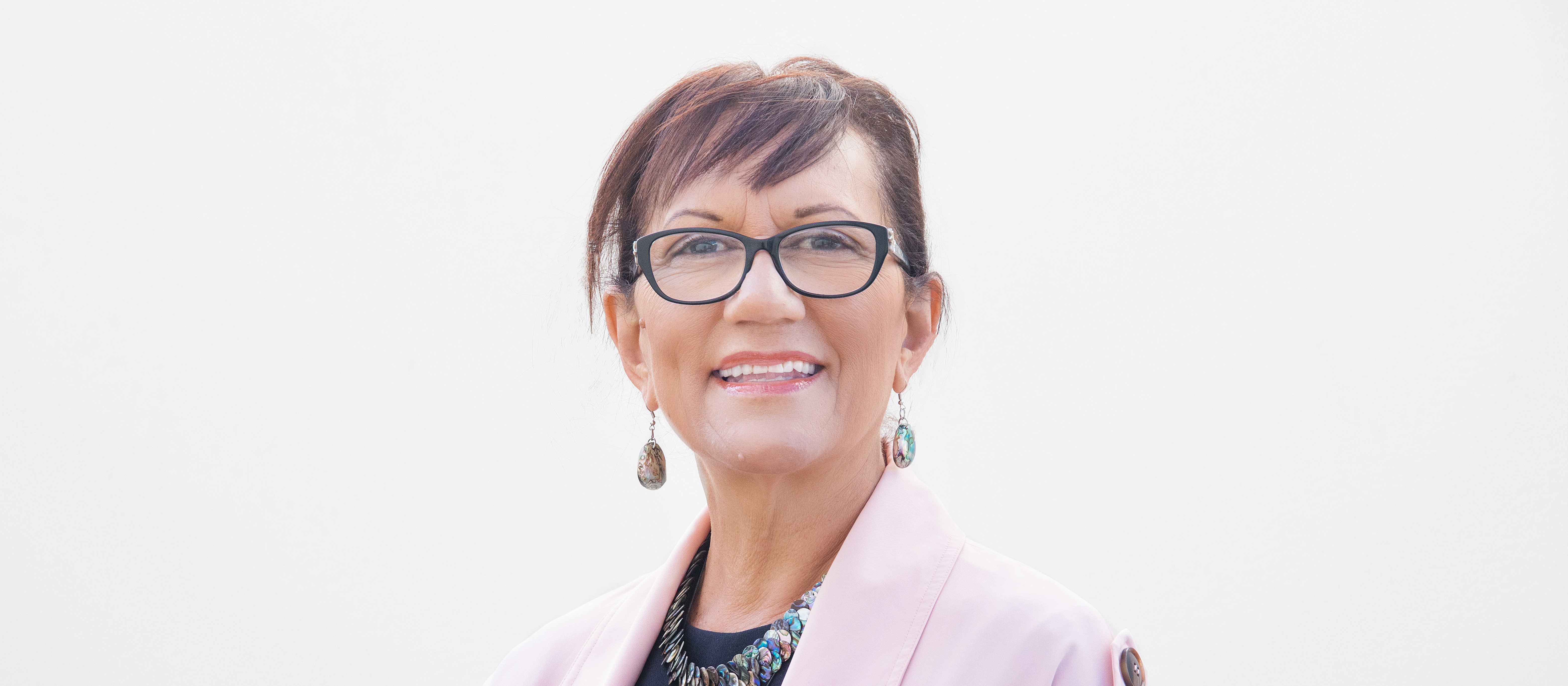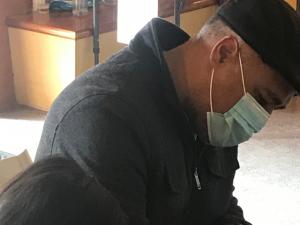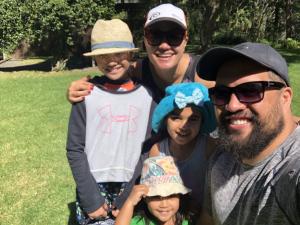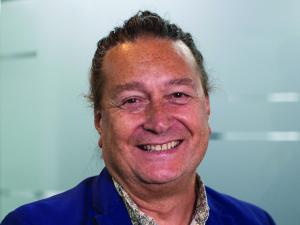Respiratory physician Lutz Beckert considers chronic obstructive pulmonary disease management, including the prevention of COPD, the importance of smoking cessation and pulmonary rehabilitation, and the lifesaving potential of addressing treatable traits. He also discusses the logic of inhaler therapy, moving from single therapy to dual and triple therapy when indicated, as well as other aspects of management
New authority in place in under a year, but Māori services put best foot forward now
New authority in place in under a year, but Māori services put best foot forward now

How the Māori Health Authority will operate still has to be worked out in a consultation process but, meanwhile, innovative health providers are excited by the potential to build on their best work. Alan Perrott reports
The Māori Health Authority will be “lights on and up and running” on 1 July 2022, says associate health minister Peeni Henare, but there is much mahi to be done before that happens.
The new entity was one of the most anticipated features of the health reforms.
It has emerged as the Crown and claimants work through the Waitangi Tribunal’s first report on the Wai 2575 Health Services and Outcomes Kaupapa Inquiry.
The consultation process that will establish the structure and official name for the authority will not be known until after funding is announced in the Budget on 20 May.
The entity will be able to commission and fund health services, particularly those following a kaupapa Māori model. It will also have a co-commissioning role with Health New Zealand for other services whose users include Māori people, and hold a veto power over plans and strategies.
These powers run counter to the minority, and ultimately final, recommendations of the Health and Disability System Review, which saw the authority as having a limited advisory role and control of two small development and innovation funds. A majority of review panel members and the entire Māori expert advisory group had their alternate view included in the final report, and they favoured commissioning.
The Cabinet paper submitted by health minister Andrew Little prior to announcing the reforms, highlights a greater role for the 20 iwi partnership boards now working with DHBs.
As self-governing bodies designed for and by iwi, Mr Little says they are not Crown agencies and could provide leadership and decision-making, in areas such as priorities and service design, to the authority on behalf of local communities.
Mr Little says this is necessary as the authority will be unable to represent the voice of all Māori at all levels and “should not assume it speaks on behalf of iwi”.
The minister also suggests existing Māori health providers may be called upon to coordinate locality networks.
If most are waiting to see what the Budget brings this month, that does not mean nothing is happening.
Mr Henare has confirmed the long-rumoured involvement of Sir Mason Durie in the development of the authority, and is looking for candidates to serve as interim chief executive and board members until next July. These announcements are expected to roll out over the next few months.
Work has also begun on the legislation that will underpin the authority.
Māori health providers have expressed excitement, saying the reforms open up new opportunities to expand kaupapa Māori services.
One of these is Mahi a Atua, a model of care developed by consultant psychiatrist Diana Kopua, using traditional narratives and creation stories to connect with Māori.
This programme is being used by Waikato and Hauraki providers to train health improvement practitioners.
Turuki Healthcare chief executive Te Puea Winiata is dusting off ideas that have struggled for traction (and funding) within the present system.
These projects will ride on the back of their south Auckland, marae-based, COVID-19 vaccination programme.
“I am so excited by this,” Ms Winiata says. “[Marae] have the community engagement, and we bring the clinical support, and we hope this is the first step in developing a suite of health and wellbeing services that would fit well with the locality model.
“I think we have already jumped ahead in how we provide access to whānau for those services, and we are ramping up our work in the digital space as well. It is all about opening up new doorways for whānau to [get] the help they need.”
Ms Winiata hopes to confirm an 18-month trial of a mobile primary care service, with Counties Manukau DHB and the Ministry of Health. Vans would take a nurse, social worker and support worker on home visits to hard-to-reach whānau, boosting the profile of healthcare in communities.
Turuki is also looking to fit out containers as mini-clinics, to be placed in shopping mall car parks so late-night care and welfare support can be provided to the homeless and rangatahi.
Such community-driven initiatives would be helped by people like Harry Burkhardt, chair of the Ngāti Kuri Trust Board and Northland DHB, and member of the iwi partnership board working with the northern DHBs.
Mr Burkhardt says the proposed repurposing of the boards will enable the provision of whānau and hapū health through a Te Tiriti o Waitangi lens. He says it allows whānau to make decisions around their health journey: “At the moment, there are gaps in that conversation and the reach of healthcare.
“I know there are those who would characterise the health reforms as centralisation; in my view, that is not the intent of it, and the iwi partnership boards are the answer to the conundrum of how you operate nationally but allow communities to do what they need to do and support them in doing that.”
The fact the Māori Health Authority is attracting “passionate” political resistance shows the plan is at least halfway there.
“If there was no resistance, then it would probably be dead in the water,” he says.







![Barbara Fountain, editor of New Zealand Doctor Rata Aotearoa, and Paul Hutchison, GP and senior medical clinician at Tāmaki Health [Image: Simon Maude]](/sites/default/files/styles/thumbnail_cropped_100/public/2025-03/Barbara%20Fountain%2C%20editor%20of%20New%20Zealand%20Doctor%20Rata%20Aotearoa%2C%20and%20Paul%20Hutchison%2C%20GP%20and%20senior%20medical%20clinician%20at%20T%C4%81maki%20Health%20CR%20Simon%20Maude.jpg?itok=-HbQ1EYA)
![Lori Peters, NP and advanced health improvement practitioner at Mahitahi Hauora, and Jasper Nacilla, NP at The Terrace Medical Centre in Wellington [Image: Simon Maude]](/sites/default/files/styles/thumbnail_cropped_100/public/2025-03/2.%20Lori%20Peters%2C%20NP%20and%20advanced%20HIP%20at%20Mahitahi%20Hauora%2C%20and%20Jasper%20Nacilla%2C%20NP%20at%20The%20Terrace%20Medical%20Centre%20in%20Wellington%20CR%20Simon%20Maude.jpg?itok=sUfbsSF1)
![Ministry of Social Development health and disability coordinator Liz Williams, regional health advisors Mary Mojel and Larah Takarangi, and health and disability coordinators Rebecca Staunton and Myint Than Htut [Image: Simon Maude]](/sites/default/files/styles/thumbnail_cropped_100/public/2025-03/3.%20Ministry%20of%20Social%20Development%27s%20Liz%20Williams%2C%20Mary%20Mojel%2C%20Larah%20Takarangi%2C%20Rebecca%20Staunton%20and%20Myint%20Than%20Htut%20CR%20Simon%20Maude.jpg?itok=9ceOujzC)
![Locum GP Helen Fisher, with Te Kuiti Medical Centre NP Bridget Woodney [Image: Simon Maude]](/sites/default/files/styles/thumbnail_cropped_100/public/2025-03/4.%20Locum%20GP%20Helen%20Fisher%2C%20with%20Te%20Kuiti%20Medical%20Centre%20NP%20Bridget%20Woodney%20CR%20Simon%20Maude.jpg?itok=TJeODetm)
![Ruby Faulkner, GPEP2, with David Small, GPEP3 from The Doctors Greenmeadows in Napier [Image: Simon Maude]](/sites/default/files/styles/thumbnail_cropped_100/public/2025-03/5.%20Ruby%20Faulkner%2C%20GPEP2%2C%20with%20David%20Small%2C%20GPEP3%20from%20The%20Doctors%20Greenmeadows%20in%20Napier%20CR%20Simon%20Maude.jpg?itok=B0u4wsIs)
![Rochelle Langton and Libby Thomas, marketing advisors at the Medical Protection Society [Image: Simon Maude]](/sites/default/files/styles/thumbnail_cropped_100/public/2025-03/6.%20Rochelle%20Langton%20and%20Libby%20Thomas%2C%20marketing%20advisors%20at%20the%20Medical%20Protection%20Society%20CR%20Simon%20Maude.jpg?itok=r52_Cf74)
![Specialist GP Lucy Gibberd, medical advisor at MPS, and Zara Bolam, urgent-care specialist at The Nest Health Centre in Inglewood [Image: Simon Maude]](/sites/default/files/styles/thumbnail_cropped_100/public/2025-03/7.%20Specialist%20GP%20Lucy%20Gibberd%2C%20medical%20advisor%20at%20MPS%2C%20and%20Zara%20Bolam%2C%20urgent-care%20specialist%20at%20The%20Nest%20Health%20Centre%20in%20Inglewood%20CR%20Simon%20Maude.jpg?itok=z8eVoBU3)
![Olivia Blackmore and Trudee Sharp, NPs at Gore Health Centre, and Gaylene Hastie, NP at Queenstown Medical Centre [Image: Simon Maude]](/sites/default/files/styles/thumbnail_cropped_100/public/2025-03/8.%20Olivia%20Blackmore%20and%20Trudee%20Sharp%2C%20NPs%20at%20Gore%20Health%20Centre%2C%20and%20Gaylene%20Hastie%2C%20NP%20at%20Queenstown%20Medical%20Centre%20CR%20Simon%20Maude.jpg?itok=Z6u9d0XH)
![Mary Toloa, specialist GP at Porirua and Union Community Health Service in Wellington, Mara Coler, clinical pharmacist at Tū Ora Compass Health, and Bhavna Mistry, specialist GP at Porirua and Union Community Health Service [Image: Simon Maude]](/sites/default/files/styles/thumbnail_cropped_100/public/2025-03/9.%20Mary%20Toloa%2C%20Porirua%20and%20Union%20Community%20Health%20Service%20in%20Wellington%2C%20Mara%20Coler%2C%20T%C5%AB%20Ora%20Compass%20Health%2C%20and%20Bhavna%20Mistry%2C%20PUCHS%20CR%20Simon%20Maude.jpg?itok=kpChr0cc)